Hook: Did you know epoxy floor coatings can last over 20 years with proper maintenance—outperforming most traditional floor paint options? This statistic alone showcases how epoxy floor coatings are revolutionizing garage floors, warehouses, and commercial spaces across the nation. If you want a surface that combines beauty, durability, and unbeatable longevity, this comprehensive guide will show you how epoxy floor coatings can transform your property and help you make an informed, confident purchase decision.
Unveiling the Strength of Epoxy Floor Coatings: Surprising Facts and Figures
"Did you know epoxy floor coatings can last over 20 years with proper maintenance—outperforming most traditional floor paint options?"
Epoxy floor coatings stand at the forefront of reliable and long-lasting solutions for residential and commercial settings. Unlike standard floor paint or garage floor paint, epoxy is renowned for its high abrasion resistance, chemical resistance, and easy-to-clean surface. Many experts point out that while regular floor paint may need reapplication every few years, a professionally installed epoxy coating system with a protective top coat can easily exceed two decades of robust use—saving homeowners and business owners time, frustration, and money.
When you compare epoxy flooring to traditional alternatives, you discover a remarkable difference in appearance, performance, and cost effectiveness. Whether you’re aiming for a sleek garage floor, a seamless industrial workspace, or a vivid metallic epoxy floor in a retail showroom, the possibilities—and the returns on investment—are greater than ever before.
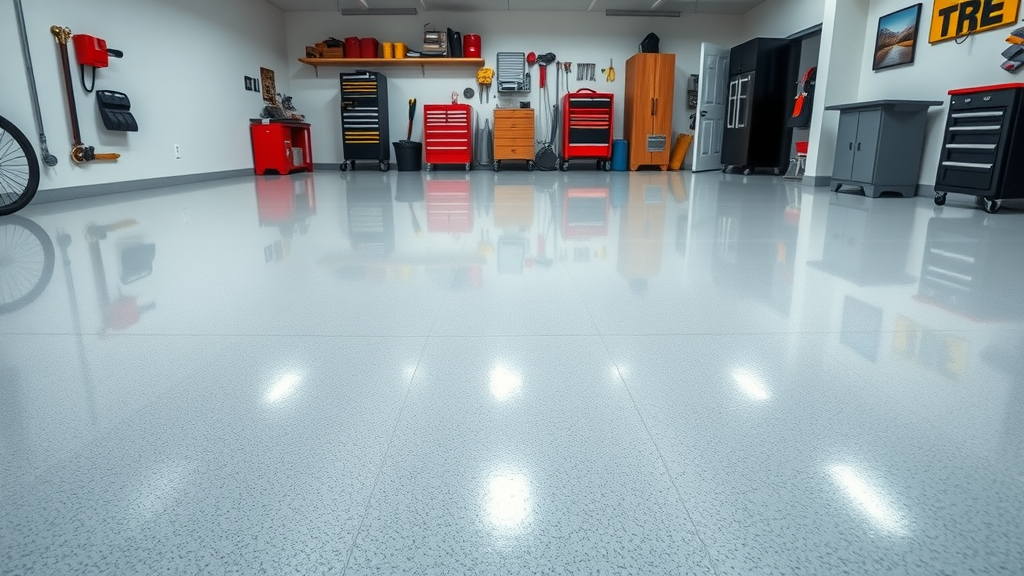
What You'll Learn: Your Complete Guide to Epoxy Floor Coatings
- The advantages of epoxy floor coatings for your garage floor
- Comparison between epoxy floor, floor coating, and garage floor paint
- How to select the best epoxy flooring system for your needs
- Detailed cost breakdowns, coverage, and FAQ
Epoxy Floor Coatings Explained: What Are They and How Do They Work?
Understanding Epoxy Floor Coatings: Components and Technology
At its core, epoxy floor coatings are built on a powerful blend of epoxy resin and hardener. When mixed, they form a robust chemical bond that, once cured, creates a tough, seamless surface that adheres tightly to concrete floors. This innovative technology explains why epoxy floor systems have surged in popularity—not just in garages, but in high-traffic environments like warehouses, showrooms, and workshops. The resulting floor epoxy is not only resilient to impact and abrasion, but also offers a variety of color options and finishes, from classic solids to decorative flake floors and luxurious metallic epoxy effects.
The floor coating process also allows for optional additives such as slip resistance aggregates, anti-microbial properties, and UV-stable top coats. Professional surface preparation is crucial—this means thorough cleaning, repairing cracks, and etching the surface to guarantee optimal adhesion. The result: an epoxy coating that elevates both the function and the aesthetics of your floor.
The Science Behind Epoxy Flooring and Floor Epoxy
The unique benefits of epoxy flooring systems emerge from the chemical structure of epoxy resin. Epoxy, a type of thermosetting polymer, undergoes a curing process that cross-links the molecules, forming a rigid, interconnected network. This structure gives the finished surface unmatched resistance to chemicals, oils, and stains—traits that are vital for a garage floor, workshop, or industrial facility. Compared to ordinary floor paint or epoxy resin sealers, this approach delivers superior protection and shine.
The flexibility of epoxy floor coatings opens up a wide range of application possibilities. Whether upgrading an old concrete floor or installing a designer metallic epoxy floor, the science behind epoxy ensures that your surface will endure daily wear, extreme temperature swings, and even heavy equipment—all while looking spectacular.
Essential Benefits of Epoxy Floor Coatings for Every Space
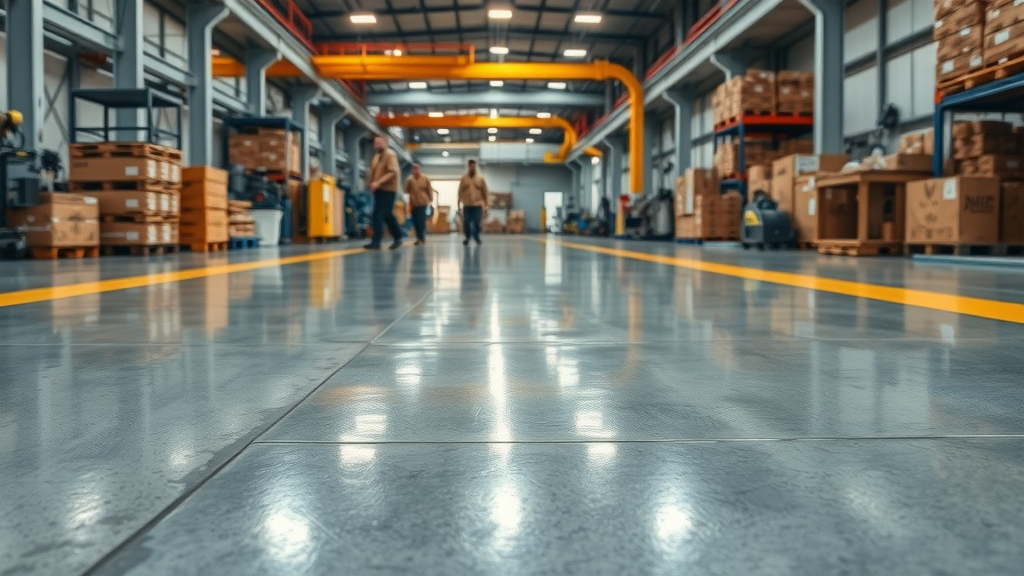
Durability, Chemical Resistance, and Longevity of Floor Coatings
Epoxy floor coatings enjoy their reputation for being extremely durable and long-lasting. Unlike regular floor paint or many other floor coatings, high-quality epoxy floors can withstand substantial foot and vehicle traffic without chipping or fading. Their chemical resistance—especially to automotive fluids, solvents, and even acids—makes them the preferred choice for garages, factories, and commercial kitchens where spills are frequent. The tough epoxy coat acts as a shield, protecting your investment from stains and corrosive elements.
In addition to durability, epoxy floor coatings are also easy to clean, making them a practical option for both homes and businesses. Routine maintenance typically involves nothing more than a mild detergent and water, as the seamless surface does not harbor dust or bacteria. With periodic cleaning and proper care, epoxy floor coatings can easily outlast alternative options, all while maintaining their glossy appearance and slip resistance.
Epoxy Floor Coatings vs. Garage Floor Paint: What’s the Difference?
Many homeowners mistakenly believe that garage floor paint and floor epoxy offer similar benefits. In reality, there’s a world of difference. While garage floor paint may provide a temporary facelift, it’s prone to peeling, staining, and rapid wear—often requiring reapplication every two to three years. By contrast, a professionally installed epoxy floor coating system delivers enduring beauty and performance, often for decades. The crucial distinction lies in adhesion and the formation of a chemical bond with the concrete.
Moreover, epoxy floor coatings can be enhanced with a protective top coat and customized with flakes, metallic pigments, or other decorative touches—something basic floor paint cannot replicate. This creates not only exceptional durability but also allows for artistic expression and personalized color options. In short, if you want your garage floor to remain spotless, resilient, and stylish, epoxy is clearly the superior solution.
- Stain resistance
- Impact resilience
- Easy maintenance
- Safety enhancements via anti-slip additives
Epoxy Floor Coatings for Garage Floor and Industrial Use
Transforming Your Garage Floor: Why Epoxy Is the Superior Solution
Upgrading your garage floor with epoxy floor coatings is one of the smartest investments a homeowner can make. Standard garage floors are prone to stains, cracking, and can look drab over time. Epoxy coatings solve these problems by forming a seamless, impermeable shield over the concrete floor, providing instant protection from auto oils, paint spills, and even hot tire pick-up. Homeowners praise how a simple epoxy coat can transform a tired, dusty space into a bright, clean, and inviting showcase.
Additionally, epoxy floor coatings offer an array of design possibilities. Solid colors project a modern and clean look, while full broadcast flake floor systems add rich visual texture and mask imperfections. The true value lies in how these flooring systems are not only durable but also elevate your home’s curb appeal and property value, making epoxy a wise long-term choice.
Industrial & Commercial: Epoxy Flooring System Advantages
Epoxy flooring systems are the gold standard for industrial and commercial environments where performance is paramount. Warehouses, manufacturing plants, showrooms, and hospitals rely on the abrasion resistance, ease of maintenance, and safety features of epoxy floors. A high-quality epoxy flooring system withstands forklift traffic, dropped tools, and constant cleaning—outlasting conventional floor paint many times over.
Beyond durability, businesses choose epoxy flooring systems for their customizable slip resistance, compliance with hygiene standards, and branding versatility. Metallic epoxy floors, for instance, create a distinctive appearance ideal for retail spaces and hospitality venues, while full broadcast flake systems meet the strictest clean-room and food-service requirements. Ultimately, investing in epoxy floor coatings means minimizing costly downtime and repairs, ensuring your operations continue without interruption.

Types of Epoxy Floor Coatings: A Comprehensive Overview
Solid Epoxy, Flake Floor, and Metallic Epoxy Floor Options
Understanding your options is crucial when selecting the best coating for garages, workshops, or commercial floors. A solid color epoxy floor offers a clean, monolithic appearance that’s ideal for users who prioritize simplicity and maximum durability. For those seeking a more decorative look, flake floor systems incorporate decorative chips or flakes, which not only add color and visual interest but also improve slip resistance and hide surface imperfections.
Metallic epoxy floors represent the pinnacle of custom design, delivering dramatic swirls and 3D visual effects—a favorite for showrooms, lobbies, and creative workspaces. Regardless of your preference, each epoxy system can be further tailored with specialty additives, from UV-stable top coats for outdoor use to antimicrobial enhancements for hospitals. The key is matching your design vision and performance need to the right epoxy flooring product.
Customizing Your Garage with Full Broadcast Flake Floors
A full broadcast flake floor is among the most popular options for garage floors. In this system, colored vinyl flakes are generously scattered across the wet epoxy coat to achieve full, uniform coverage. This creates a visually dynamic surface that hides dust, dirt, and minor flaws far more effectively than standard floor paint. With hundreds of color options and custom blends available, you can select a combination that matches your garage, brand identity, or personal style.
The finishing touch is a clear top coat, sealing the flakes in place and providing a glass-like sheen while enhancing durability and making the floor extremely easy to clean. With full broadcast systems, you’re not just coating your garage floor—you’re investing in a customized, professional result that reflects your unique taste and stands up to daily life.
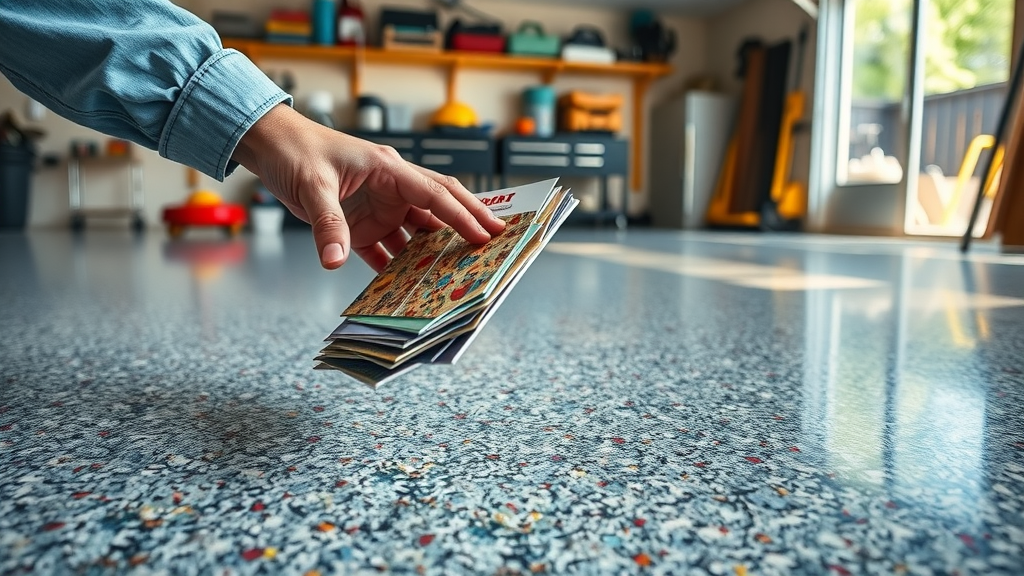
Step-by-Step Guide: How Epoxy Floor Coatings Are Applied
-
Surface Prep: Cleaning and Repair
Proper surface preparation is essential for epoxy adhesion and longevity. This involves cleaning the existing concrete floor, removing contaminants, repairing cracks, and etching the surface. Skipping this step can lead to peeling or delamination. -
Priming with the Right Floor Coating
A primer coat enhances bonding, filling in pores and imperfections to create a strong, even base for the subsequent epoxy coats. -
Mixing and Application of Epoxy Coat
The two-part epoxy resin system is mixed thoroughly and rolled onto the floor, ensuring an even, seamless application. -
Broadcasting Decorative Flakes or Metallic Epoxy
While the epoxy is still tacky, flakes or metallic pigments are spread for color and texture. -
Adding a Protective Top Coat
Once set, a clear top coat locks in flakes (if used) and protects the surface from wear, UV exposure, and chemicals, delivering shine and longevity.
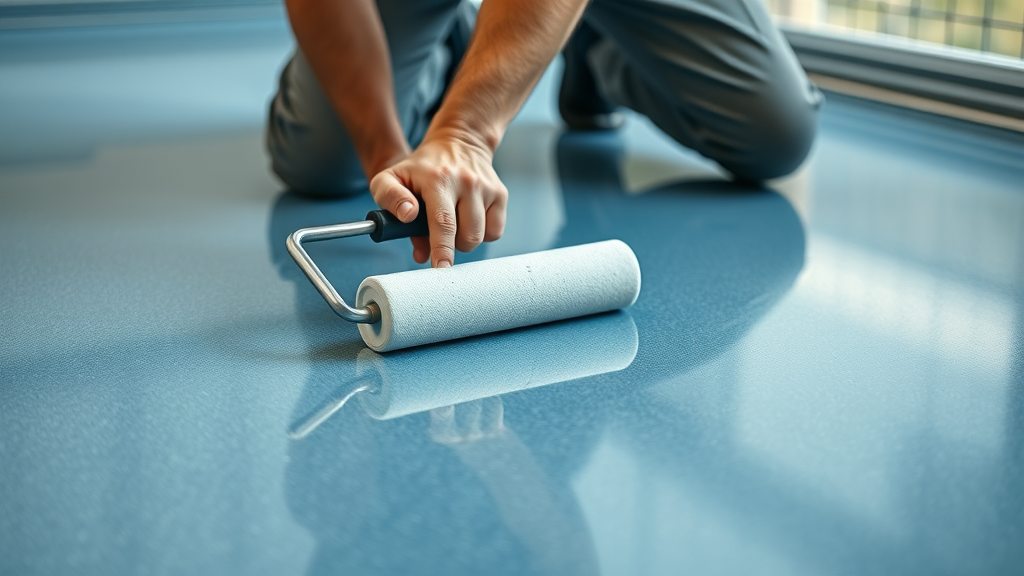
Comparing Epoxy Floor Coatings with Other Flooring Systems
| Feature | Epoxy Floor Coatings | Floor Paint | Tile/Vinyl/Other Systems |
|---|---|---|---|
| Cost (Residential $/sq ft) | $3 – $8 | $1 – $3 | $3 – $12 |
| Durability | 20+ years | 1–3 years | 5–15 years |
| Maintenance | Easy to clean, minimal upkeep | Needs reapplication, peels easily | Grout/seams can accumulate dirt |
| Appearance | Glossy, customizable (solid, flake, metallic) | Matte, limited options | Varies, not seamless |
| Chemical Resistance | Excellent | Poor | Varies |
| Installation Time | 1–3 days | 1 day | Varies, can be longer |
Key Considerations When Choosing Epoxy Floor Coatings
- Surface type (concrete vs. old flooring)
- Exposure to chemicals
- Desired aesthetics: flake, metallic, or solid
- Thickness and coverage
Cost Analysis: How Much Do Epoxy Floor Coatings Cost?
Price Ranges for Garage Floor Epoxy, Floor Epoxy, and Full Installations
Pricing for epoxy floor coatings can vary based on surface size, existing floor condition, chosen system (simple solids vs. metallic epoxy or flake floor), and whether you're opting for a DIY kit or professional installation. For a typical garage floor, expect to pay between $1,200 and $3,000 for a high-quality, professionally installed system. Commercial and industrial projects, which demand thicker layers and enhanced chemical resistance, may run $4–$10 per square foot, depending on required specifications. Always request a detailed quote that breaks down labor, materials, and any specialty top coats.
Remember, investing in a durable, professional epoxy floor coating saves money and hassle over the years, compared to frequently resurfacing with basic floor paints or replacing failed alternative systems.
| Floor Type | Material Cost ($/sq ft) | Labor ($/sq ft) | Total ($/sq ft) |
|---|---|---|---|
| Residential (Garage) | $1.50 – $3 | $1 – $4 | $3 – $7 |
| Commercial / Industrial | $2 – $4 | $2 – $6 | $4 – $10 |
| Full Broadcast Flake | $2 – $3 | $2 – $5 | $4 – $8 |
| Metallic Epoxy Floor | $2 – $4 | $2 – $6 | $4 – $10 |
Epoxy Floor Coatings Reviews: What Real Customers Are Saying
"The best decision for my garage floor—my epoxy floor has been flawless for years!" – Verified Owner
Customers routinely highlight the transformative effect epoxy coatings have on their garage floors and workspaces. Many cite how easy it is to clean oil spills and road salt, and appreciate the wide range of color and style options. Those who switched from garage floor paint or other coatings often rave about the superior longevity and the "like new" finish that persists even after heavy use. Commercial clients value the minimal downtime during installation and the way an epoxy floor boosts their business image.
Negative reviews are rare but usually linked to improper surface prep or rushed DIY application—underscoring the value of professional installation. Overall, satisfaction rates are sky high for correctly installed epoxy floors, with customers unanimously recommending them over alternative flooring systems.
Epoxy Floor Coatings Maintenance and Longevity Tips
Maintaining Your Epoxy Flooring System: Dos and Don'ts
To maximize the lifespan of your epoxy floor coatings, follow a simple maintenance routine. Regular dust mopping and occasional washes with gentle soap and water will keep your floors gleaming. Avoid abrasive cleaners or steel wool, which can scratch the protective top coat. If you notice chips or minor damages, prompt repair with a matching epoxy patch will preserve both looks and performance.
For areas exposed to heavy or abrasive use, placing floor mats at entryways and using soft wheels on equipment can further extend the lifespan of your coating system. By observing these practices, property owners can enjoy flawless, easy-to-clean floors for decades—making epoxy a standout choice for anyone seeking reliability.
- Cleaning routines
- How to spot and repair minor damages
- Extending the life of your floor coating
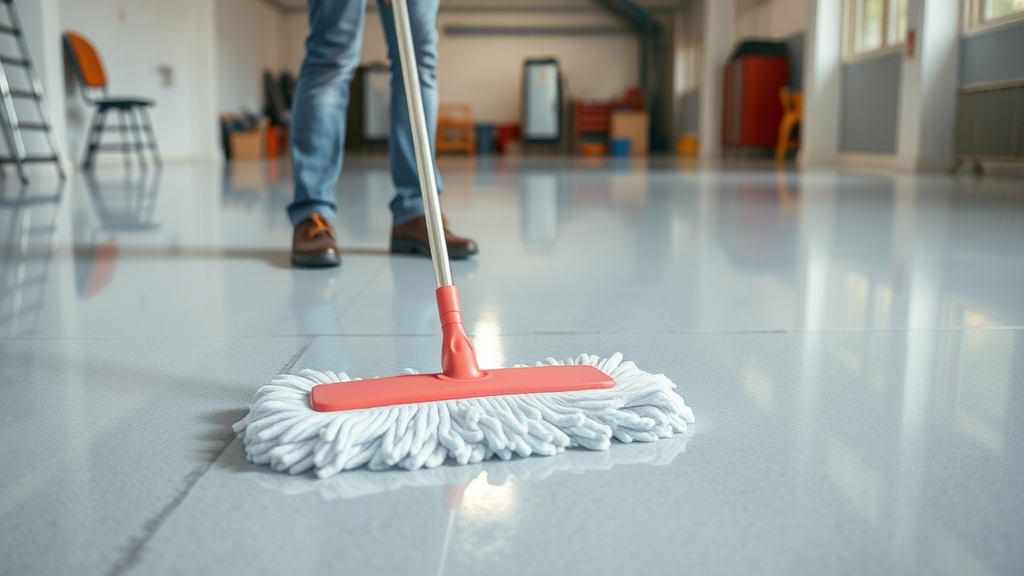
People Also Ask about Epoxy Floor Coatings
What are the negatives of epoxy flooring?
Epoxy flooring can be slippery when wet, may yellow under prolonged UV exposure, and requires proper surface preparation to avoid delamination. Replacement or repair can be costly if not done correctly.
How much does it cost to epoxy a 20x20 garage floor?
A standard 20x20 garage floor epoxy installation typically costs between $1,200 and $3,000 depending on surface condition, chosen system (solids vs. flake or metallic), and labor.
How much epoxy for a 1000 sq ft floor?
You will need approximately 10 to 12 gallons of mixed epoxy (including primer, color coat, and top coat) for a 1,000 sq ft floor, though coverage varies by thickness and type.
Can you epoxy over old concrete?
Yes, epoxy can be applied over old concrete provided the surface is clean, dry, and repaired of any cracks or damage for optimal adhesion and longevity.
Expert Tips: How to Select the Best Epoxy Floor Coatings for Your Needs
Choosing the Right Floor Epoxy for Your Garage, Workshop, or Commercial Space
Finding the ideal epoxy floor coatings means thinking beyond color. Assessing your typical traffic, expected chemical exposure, and the need for decorative elements like flakes or metallic pigments ensures you get the maximum benefit. For high-traffic garages and commercial areas, selecting a thicker, more abrasion-resistant system with a durable top coat delivers lasting value. Always consult with accredited professionals—they can analyze your needs, recommend appropriate systems, and guarantee that the surface prep and application are handled to exacting standards.
Don’t forget to consider how the space will be used. Workshops and industrial zones benefit from anti-slip aggregates and chemical-resistant formulas, while showrooms and home garages may emphasize aesthetics. Epoxy floor coatings can be tailored for nearly every application—you just need the right advice and installation team.
- Assess your traffic and usage
- Prioritize chemical resistance
- Consider decorative preferences (solid, metallic, flake)
- Consult with flooring system professionals
FAQs: Epoxy Floor Coatings
- Does epoxy floor coating increase property value?
- How long does installation take?
- Can I DIY apply epoxy floor coatings?
- What surface prep is required?
- Are epoxy floors environmentally friendly?
Key Takeaways: Epoxy Floor Coatings
- Epoxy floor coatings offer unmatched durability, protection, and customization
- Upgrading your garage floor or commercial space increases property value
- Proper surface prep and professional installation ensure maximum lifespan
Conclusion: Ready to Unleash the Power of Epoxy Floor Coatings?
Take the next step toward a more beautiful and resilient surface—invest in epoxy floor coatings and experience the lasting difference in your home or business.
"Epoxy floor coatings have truly elevated the functionality and appearance of our showroom floor—highly recommended for anyone considering an upgrade."
Call us now to get your free quote!!
To further enhance your understanding of epoxy floor coatings, consider exploring the following authoritative resources:
-
“Epoxy Flooring: The Complete Guide” by Sherwin-Williams provides an in-depth look at the benefits, applications, and maintenance of epoxy flooring systems, emphasizing their durability and suitability for various commercial and industrial environments. (industrial.sherwin-williams.com)
-
“Epoxy Floor Coatings Explained” by Hybrid Coating Technologies offers a comprehensive overview of epoxy floor coatings, detailing their advantages such as chemical resistance and aesthetic appeal, as well as potential drawbacks like slipperiness when wet. (hybridcoatingtech.com)
These resources will equip you with valuable insights to make informed decisions about epoxy floor coatings for your specific needs.
 Add Row
Add Row  Add
Add 

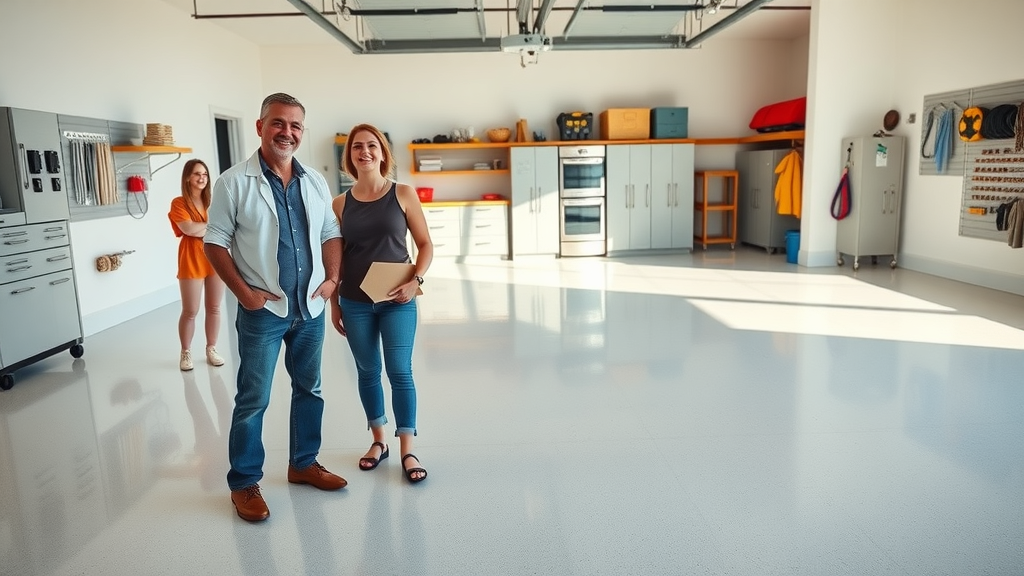
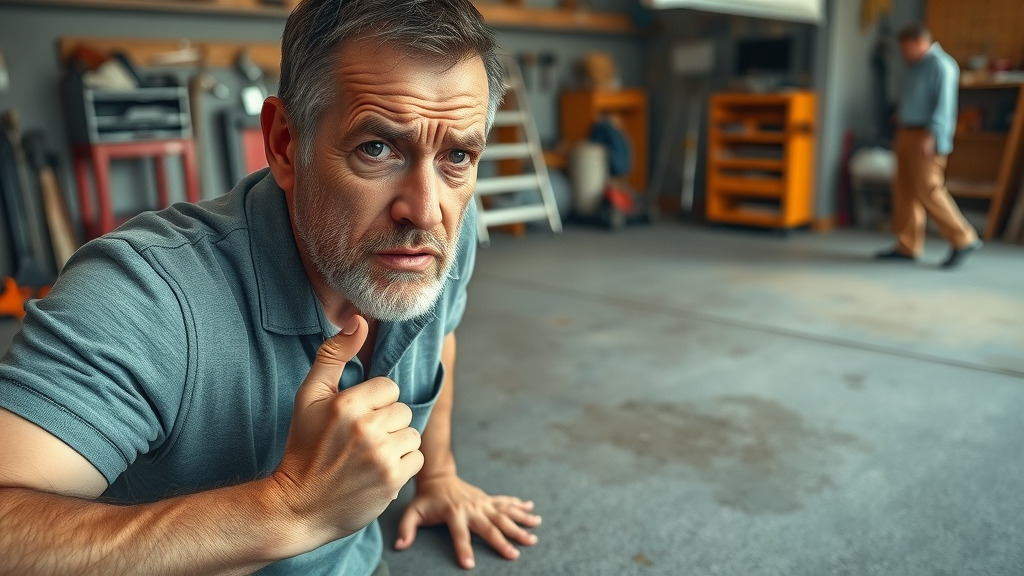
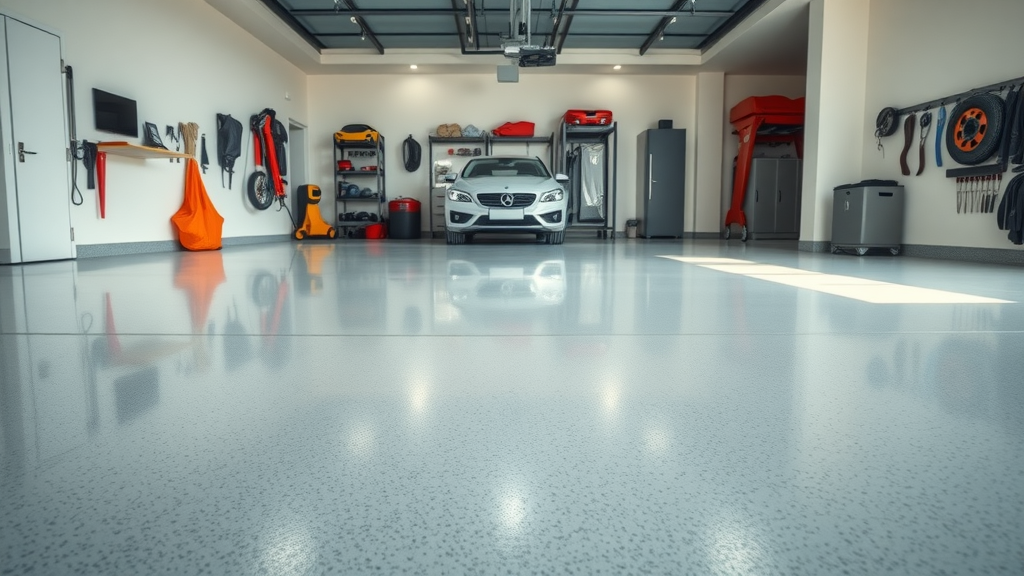
Write A Comment